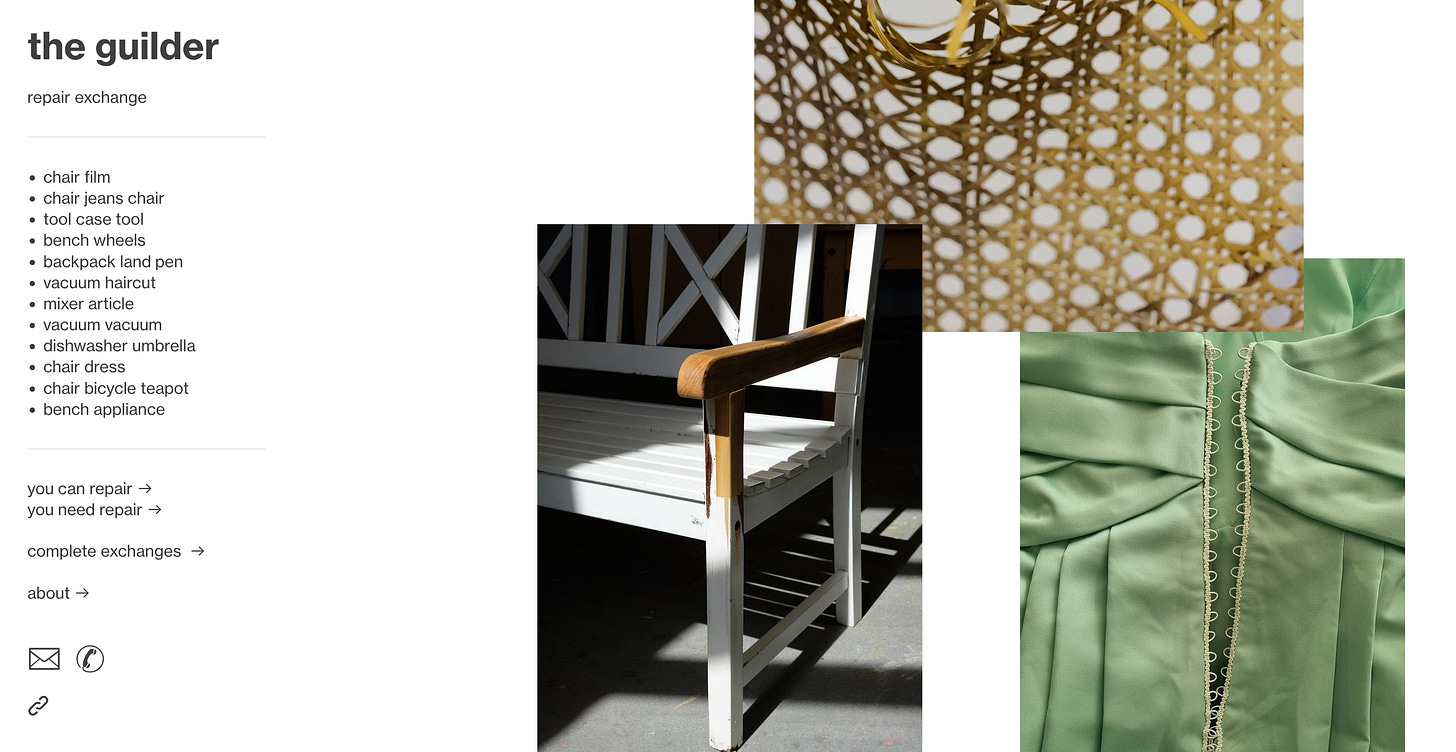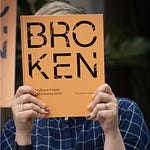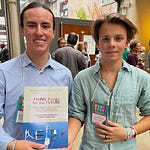This week we bring Ollee Means to the podcast, creator of the guilder, the platform that facilitates repair with its users spending zero money. The overarching goal of the platform is to socialize repair without any monetary exchanges. Instead, what users do is offer their services in exchange for something else.
Let’s say you know how to repair an iPhone, but don’t know how to sew and your jeans rip. You could repair someone’s iPhone in exchange for them patching up your clothes.
In the grand scheme of human history, monetary exchanges (using currency to buy and sell things) is relatively new. Moving back to a community oriented and socially connective practice seems natural. Part of what makes the guilder so compelling is that it moves against our current trends of fast-consumption, quick-disposal, and treating people as consumers first rather than humans. By instead focusing on the human element of repair, and how it can reinforce bonds within a community, there is a beauty that comes from these simple acts of mutual aid.
Transcript
Jack Monahan: Hey, everybody. Welcome back to the Fight to Repair Podcast. For those of you who are new I'm Jack Monahan. And this week we have Ollee Means, creator of the Guilder, a website that facilitates repair through non-monetary exchanges. Ollee and I chat about how the Guilder is helping to socialize repair, how it's helping communities become more resilient, what circular economies can look like at the local level, and where right to repair could go wrong.
Listen to this episode with a 7-day free trial
Subscribe to Fight to Repair to listen to this post and get 7 days of free access to the full post archives.












